This article was co-authored by Alina Lane, DDS. Dr. Alina Lane is a Dentist who runs All Smiles Dentistry, a general practice dental office based in New York City. After completing a DDS at the University of Maryland, Dr. Lane completed a year-long clerkship in Implantology at the University of Maryland, where she focused on the advanced restoration of dental implants. She continued her advanced education by completing a General Practice Residency at Woodhull Medical Center, an affiliate of the NYU School of Medicine. She received the Woodhull Medical Center Resident of the Year 2012-2013.
This article has been viewed 47,379 times.
Dental care is an integral component of basic health and hygienic maintenance. In addition to brushing and flossing daily, you should have your teeth cleaned by a dentist regularly. Choosing a dentist you come to know and trust will make it more likely that you schedule and attend your appointments. Making your first appointment is not the end of the evaluation process. When you visit the practice for the first time, make note of whether or not you want to come back in the future.
Steps
Finding a Recommended Dentist
-
1Check your dental insurance policy.[1] Your insurance company may have a list of approved healthcare providers. If so, this will make your search for a good dentist easier because you won't have as many offices to choose from. If your community is small enough, you might only have one or two options.[2]
-
2Ask your primary healthcare provider. Doctors are a good place to start a search for a good dentist. They will likely have had numerous patients who have attended each dentist in the area, and may have heard about their experiences. They may also be aware of the area dentists’ reputations in the medical community.[3]Advertisement
-
3Ask family, friends, and neighbors.[4] If you move to a new place, it is a good idea to ask a few neighbors which dentist they see. Your family and friends also have a dentist that they rely on, so they will be able to make a recommendation. This is the best way to get an honest review of a dentist, since you know whether they have any bias.[5]
- For example, your cousin may be a dental hygienist or dentist with their own practice. Unlike anonymous reviews, you will at least know their bias.
-
4Look at internet reviews.[6] This may not be the most 100% reliable source, since there are many internet reviews with ulterior motives; however, you may be able to get a wider range of reviews. Though there may be overwhelming good and negative reviews, look at the median experience. Since there are two sides to every story, try not to discount a dentist based on one or two bad internet reviews alone.[7]
- Take all internet reviews with a grain of salt, and pay attention to what the complaints are about rather than the aggregate score. Don't put much stock in complaints about drawbacks of getting to the office or the inconvenience of having to see a dentist — complaints that may apply to all offices; however, if most reviews are complaining about something specific, such as consistently waiting significantly past their appointment time to be seen, take the information into consideration.
-
5Consider the convenience factor. Plug the address of the dentist into map software and see how long it will take you to get there. Look at how close it is to your work or your children’s schools to see if it is convenient to travel to the office after or before work or school. Good dental care is important, but if you have no more important ways to make your decision, there is nothing wrong with choosing based on convenience.[8]
-
6Look for dentists that meet your needs. You may only need a general care dentist; however, it is helpful to know the classifications. You can save yourself the time of researching a practice if you know they don’t do basic tooth cleanings.[9] Look for a private clinic with an experienced staff. Someone who targets a variety of specialities will also be helpful if you develop more complicated issues down the road.
- Endodontics: these practices perform special procedures involving root canals, cracked teeth, and more.
- Orthodontics: these practices are concerned with misaligned teeth. They fit you with braces, and generally don’t do basic tooth cleanings.
- Pediatric dentistry: your children will need someone who is qualified in pediatrics. Ask the practice if they clean children’s teeth as well as adults.
- Periodontics: this is a branch of dentistry that treats special conditions in the gums and jaw. They will deal with loose teeth that might need to be extracted.
- Prosthodontics: these practices specialize in creating prosthetic teeth and other parts of your mouth.[10]
Going For Your First Visit
-
1Pay attention to your dentist’s availability. Was it easy to make an appointment? Were there different openings to choose from? When you got to the office, did you have to wait a long time after your time slot? Sometimes, going to a good dentist means sacrificing some of your time; however, if you have the option, go with the dentist you had the easiest time accessing.[11]
-
2Note if the appointment was easy and convenient to attend. Plugging the address of the dentist into a map is one thing, but getting there in practice may be another. Were there dangerous roads or intersections? Could you find parking? If it is stressful getting to your dentist’s office, you will be more likely to delay or cancel appointments.
- For people who take public transit to their dentist, this is an especially important step. Knowing additional costs and hassles of transportation are factors you need to consider.
- Your dentist should try to cover as many issues as possible in one session. Notice if you have to return multiple times for things that could have been done in one visit.
-
3Look at cleanliness. It is ok to glance around and make sure that the instruments and facility seem clean. After all, this is a medical office that needs to be sanitary. Since dentists are often operating in mouths that may have open cuts or sores, reducing the risk of infection means looking for clean conditions.[12]
-
4Ask about their ability to treat emergencies. While it may not be a reason to choose a different dentist for basic tooth cleanings, knowing whether they can treat you in emergencies is important. If not, ask them who they would recommend for emergency tooth operations. Preparing for that possibility now will make it much less stressful if the time comes that you need to visit an emergency dental clinic.
-
5Think about bedside manner. Was the staff courteous and easy to deal with? Was the dentist friendly and careful? Dreading having to deal with unpleasant personnel may be another source of resistance to attending or scheduling dental appointments. Make sure you enjoy or at least can tolerate your dentist and his or her staff.
References
- ↑ Alina Lane, DDS. Board Certified Dentist. Expert Interview. 21 April 2020.
- ↑ https://www.mouthhealthy.org/en/dental-care-concerns/how-to-choose-a-dentist
- ↑ https://www.webmd.com/oral-health/guide/finding-dentist#1
- ↑ Alina Lane, DDS. Board Certified Dentist. Expert Interview. 21 April 2020.
- ↑ https://www.webmd.com/oral-health/guide/finding-dentist#1
- ↑ Alina Lane, DDS. Board Certified Dentist. Expert Interview. 21 April 2020.
- ↑ https://www.mouthhealthy.org/en/dental-care-concerns/how-to-choose-a-dentist
- ↑ https://www.mouthhealthy.org/en/dental-care-concerns/how-to-choose-a-dentist
- ↑ http://www.wda.org/your-oral-health/own-your-smile/choosing-a-dental-home


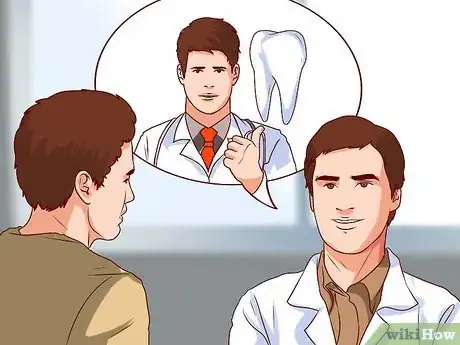




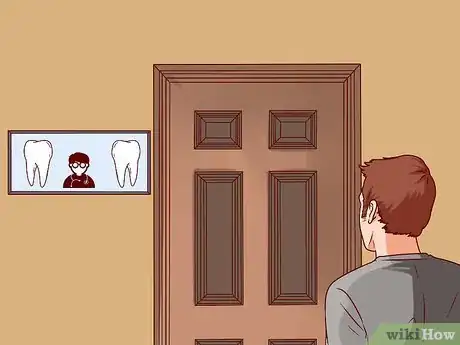


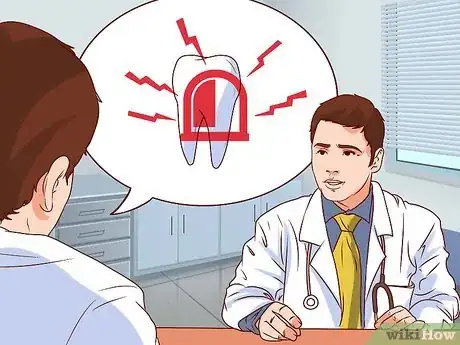



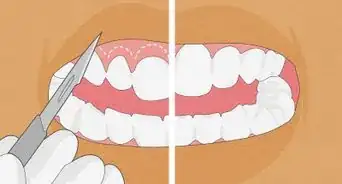

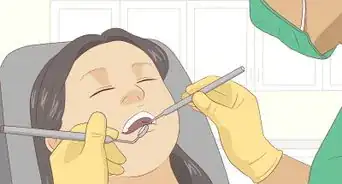

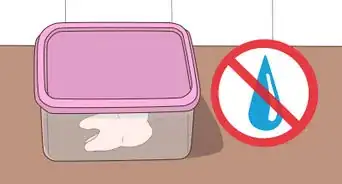















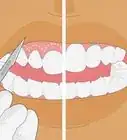




































Medical Disclaimer
The content of this article is not intended to be a substitute for professional medical advice, examination, diagnosis, or treatment. You should always contact your doctor or other qualified healthcare professional before starting, changing, or stopping any kind of health treatment.
Read More...